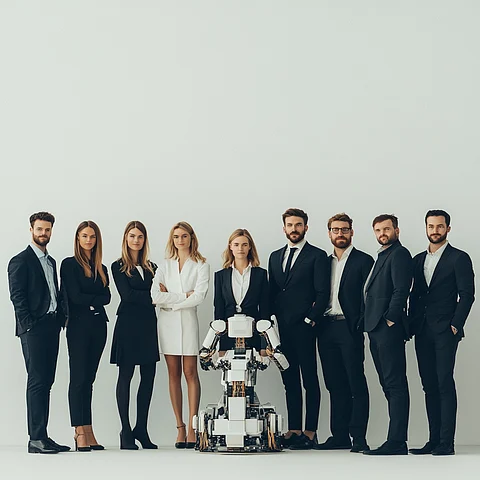

Over the past few decades, I’ve witnessed waves of technological evolution—from the rise of cloud computing to the advent of mobile, social media, and the early days of AI. But nothing compares to the transformation we’re seeing today.
While much of the conversation around AI focuses on large language models, the real breakthrough lies in AI-driven digital labor: autonomous, intelligent agents. These agents can act independently, collaborate, and continuously learn, enabling businesses of all sizes to scale beyond human limitations.
For today’s business leaders, this shift is monumental. The future workforce won’t just be human—it will be a blend of humans and digital agents, working together to achieve unprecedented efficiency and productivity. Managing this hybrid workforce will become a defining leadership skill, separating thriving companies from struggling ones.
Take the example of Heathrow Airport, where AI agents handle passenger queries 24/7, freeing up staff to address more complex needs. Similarly, at Salesforce, AI agents now resolve the majority of customer support queries autonomously, reducing costs by up to 50% for our clients and redeploying thousands of roles to higher-value tasks.
The rise of AI agents is also empowering small businesses. Tasks like outreach, customer service, and back-office processes can be automated, allowing smaller firms to compete at scale. For instance, Precina Health uses AI to deliver personalized diabetes care, cutting costs while improving patient outcomes.
AI agents are already driving productivity growth, even in the face of shrinking labor pools. From education to urban planning and disaster relief, these tools offer solutions at scale, reaching underserved communities and addressing complex societal challenges.
Yet, as transformative as AI agents are, they also bring disruption. Workers must be reskilled for emerging roles like AI trainers and decision auditors. Building trust, ensuring transparency, and embedding ethical safeguards into AI systems are crucial to unlocking their full potential.
By embracing AI with accountability and a focus on human collaboration, we can harness its power to create a more equitable, sustainable future. This isn’t just a technological shift—it’s an opportunity to reshape the way we work and live.
